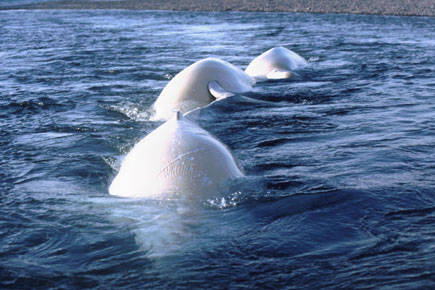Scientists studying belugas in Cook Inlet received federal funds to continue research on the endangered species.
Alaska Department of Fish and Game has been awarded $1.7 million in three grants from the National Oceanic and Atmospheric Administration through the Species Recovery Grants to States Program. The program is designed to support management, research and outreach campaigns for the conservation of wildlife on the endangered species list, an Aug. 9 press release from Congressman Don Young, who voted in support of the funding, said.
A $443,579, three-year award goes toward research for adult female Steller sea lions in western Alaska. The goal of the research is to provide updated, fine-scale, understanding of adult female Steller sea lion foraging habitat, and to determine the environmental factors influencing the timing and location of foraging behavior, thus providing better information to meet management needs, according to NOAA.
The other two grants help fund research for the endangered Cook Inlet beluga whale population. The grants are $850,641 and $409,802 and aim to strengthen conservation and management strategies for the beluga population in Southcentral Alaska. The grants will fund research that explore the belugas habitat use and how disturbance from noise may impact their way of finding food and communicating with other whales.
“The Alaska Department of Fish and Game does important work on behalf of Alaska’s unique ecosystems, and I have no doubt that this funding will go a long way to help better guide management practices for the western distinct population segment of the species range,” Young said in the release. “The funding will not only help us better understand foraging ecology and habitat disturbances, but will also assist the Department of Fish and Game in the development of a long-term strategy for population recovery. I recognize how important Alaska’s diverse wildlife population is to our culture and way of life.”
Young said he will continue supporting efforts to ensure future generations of Alaskans can observe and learn about wild animals for years to come.


